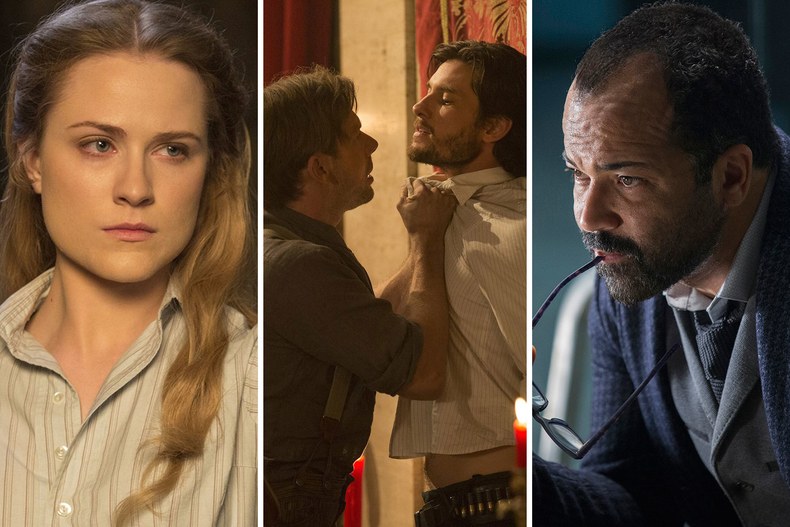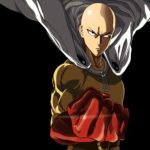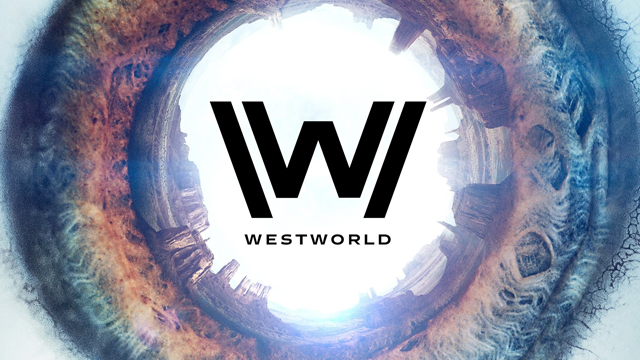
“These violent delights have violent ends…”
Westworld is a science fiction drama that airs on Sunday nights at 9p.m. on HBO. It’s loosely based off the 1973 film of the same name which was written and directed by author Micheal Crichton. The original film starred Richard Benjamin and James Brolin as two vacationers at a theme park whose guests pay a large sum of money to live out their fantasies as people did in the old west. The park was populated with sophisticated robots that looked and acted just like humans, so much so, that it was almost impossible to tell the difference. These robots would cater to your every whim, from gunfights in a saloon to stopping a Stage Coach robbery, or even a rendezvous with a woman in the worlds oldest profession (if you know what I mean). The park was run by a full technical staff that the guests never saw, hidden away in a nondescript control room monitoring each guest’s actions and controlling the robots accordingly. Everything was all good until the robots began to malfunction and go off script. Benjamin and Brolin end up running for their lives when a robot gunman dressed in black, played by Yul Brenner, starts to malfunction and hunt them down in a game of make believe turned real.
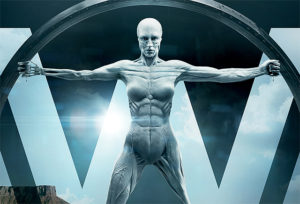 Fast forward to today, where the old 1973 film has been reworked into an ongoing weekly science fiction drama. This HBO version is based with basic premises of the original, but so much more advanced. Created by the team of Jonathan Nolan and Lisa Joy, by turning the film into a weekly show that will span for ten episodes, they have the time to patiently tell the story and let things build in a way that an hour and a half long film couldn’t. This kind of time frees the show runners up to tell a deeper more intricate story, with themes, concepts, and theories not touched by the source material.
Fast forward to today, where the old 1973 film has been reworked into an ongoing weekly science fiction drama. This HBO version is based with basic premises of the original, but so much more advanced. Created by the team of Jonathan Nolan and Lisa Joy, by turning the film into a weekly show that will span for ten episodes, they have the time to patiently tell the story and let things build in a way that an hour and a half long film couldn’t. This kind of time frees the show runners up to tell a deeper more intricate story, with themes, concepts, and theories not touched by the source material.
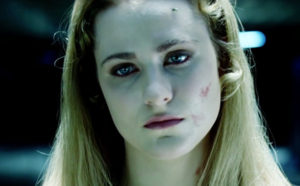 This includes theories like “The Bicameral Mind,” proposed by psychologist Julian Jaynes in 1976. He wrote a book called “The Origin Of Consciousness in the Breakdown of the Bicameral Mind.” In it, he theorized that human consciousness wasn’t naturally a part of us from the beginning, but developed thousands of years later. The inner monologue we hear isn’t our own, but that of a God, deity, or outside source that speaks to us. Or “Cognitive Dissonance,” the notion that you have two competing beliefs that differ on the same topic, and the conflict that arises over which one to follow. Another concept touched upon by the show is what defines humanity, what it means to be human. Can artificial intelligence become so advanced, with feelings, personality, and awareness, that it becomes human? Can you lose your humanity? Do laws that govern man apply to artificial life? The show so far has addressed these questions in a way that elevates Westworld well beyond its original inspiration.
This includes theories like “The Bicameral Mind,” proposed by psychologist Julian Jaynes in 1976. He wrote a book called “The Origin Of Consciousness in the Breakdown of the Bicameral Mind.” In it, he theorized that human consciousness wasn’t naturally a part of us from the beginning, but developed thousands of years later. The inner monologue we hear isn’t our own, but that of a God, deity, or outside source that speaks to us. Or “Cognitive Dissonance,” the notion that you have two competing beliefs that differ on the same topic, and the conflict that arises over which one to follow. Another concept touched upon by the show is what defines humanity, what it means to be human. Can artificial intelligence become so advanced, with feelings, personality, and awareness, that it becomes human? Can you lose your humanity? Do laws that govern man apply to artificial life? The show so far has addressed these questions in a way that elevates Westworld well beyond its original inspiration.
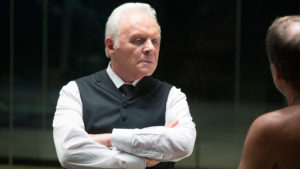 Another perk of having time to build stories is having a cast that can deliver on these complexities, and in this category, Westworld hits the target. The cast is excellent, with heavyweights like Sir Anthony Hopkins, who plays Dr. Robert Ford, park creator. Jeffrey Wright is Bernard Lowe, Ford’s right hand man and chief programmer of the robots. Veteran actor Ed Harris appears as the mysterious “man in black,” possibly a take on the old Yul Brenner character from the original. Westworld also stars Ben Barnes, Jimmi Simpson, James Marsden, Thandie Newton, and Evan Rachel Wood who’s been putting on an Emmy award winning performance so far. The whole cast has been great over the first five episodes, with five more to go.
Another perk of having time to build stories is having a cast that can deliver on these complexities, and in this category, Westworld hits the target. The cast is excellent, with heavyweights like Sir Anthony Hopkins, who plays Dr. Robert Ford, park creator. Jeffrey Wright is Bernard Lowe, Ford’s right hand man and chief programmer of the robots. Veteran actor Ed Harris appears as the mysterious “man in black,” possibly a take on the old Yul Brenner character from the original. Westworld also stars Ben Barnes, Jimmi Simpson, James Marsden, Thandie Newton, and Evan Rachel Wood who’s been putting on an Emmy award winning performance so far. The whole cast has been great over the first five episodes, with five more to go.
Midway through the series, the buzz surrounding the show is at a fever pitch. The internet, podcasts, news outlets are all raving over it. And for HBO, it could not have come at a better time, with their other award winning monster hit Game Of Thrones entering it’s eighth and final season, Westworld looks to be a worthy successor.
Check back with Rogues Portal for more news and coverage on HBO’s Westworld!